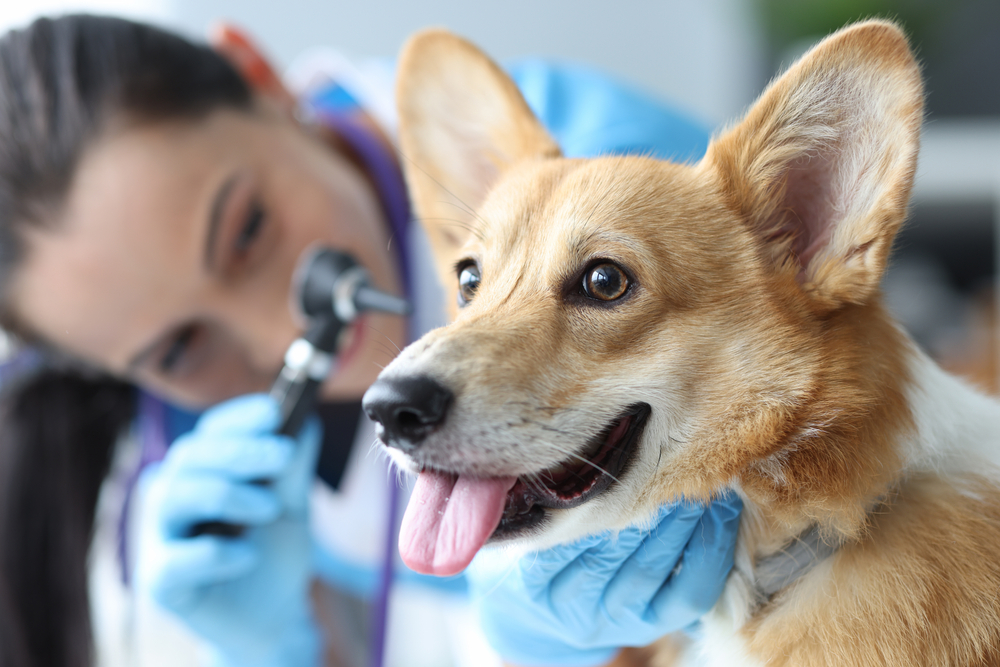
If your dog or cat is constantly itching, sneezing, or experiencing digestive issues, allergies could be the culprit. At Vista Hills Animal Hospital, we want pet owners to feel empowered to recognize the signs of allergies, understand their causes, and explore effective treatment options to help your pets feel their best.
Common Symptoms of Allergies in Pets
Allergies in pets can present in a variety of ways, often depending on the type of allergy and the animal’s unique sensitivities. Some of the most common signs include:
• Excessive scratching, licking, or biting
• Red, inflamed, or irritated skin
• Frequent ear infections
• Watery eyes or runny nose
• Sneezing or coughing
• Chronic licking of paws or body
• Gastrointestinal issues (vomiting or diarrhea)
• Hair loss or hot spots
If you notice any of these symptoms, especially if they persist, it’s important to schedule an examination with your veterinarian.
Common Causes of Pet Allergies
Allergies in pets can be triggered by a variety of factors, often falling into one of these categories:
• Environmental Allergies (Atopy): Pollen, dust mites, mold, grass, and other substances in the environment can trigger allergic reactions in pets—especially during certain seasons.
• Food Allergies: Some pets develop sensitivities or allergies to certain proteins or ingredients in their food, leading to skin problems or digestive upset.
• Flea Allergy Dermatitis: A common culprit, flea bites can cause severe itching and discomfort in pets who are allergic to flea saliva.
• Contact Allergies: Sometimes, direct contact with certain substances such as cleaning products, shampoos, or certain fabrics can cause localized skin reactions.
Diagnosis and Treatment Options
Diagnosing allergies in pets often involves a combination of a physical examination, a review of your pet’s medical history, and sometimes specialized tests. Your veterinarian may recommend skin or blood tests to identify specific allergens, elimination diets to pinpoint food allergies, and flea combing and control checks to rule out flea allergy dermatitis. This comprehensive approach helps determine the underlying cause of your pet’s symptoms so an effective treatment plan can be developed.
Treatment will depend on the type and severity of your pet’s allergies, but common strategies include:
• Medications: Antihistamines, steroids, or immunotherapy may be prescribed to control symptoms.
• Dietary changes: Switching to hypoallergenic or limited-ingredient diets for food allergies.
• Flea control: Year-round flea prevention is essential, even for indoor pets.
• Topical therapies: Medicated shampoos and conditioners can help soothe itchy skin.
• Environmental management: Reducing exposure to allergens by using air filters, frequent cleaning, and limiting outdoor time during high-pollen seasons.
Your veterinarian may develop a personalized allergy management plan based on your pet’s specific needs.
Take the First Step Toward Allergy Relief for Your Pet
Addressing allergies in pets can greatly improve their comfort and overall quality of life. With prompt attention and the right treatment plan, most pets can enjoy relief from their symptoms. If you notice any signs of allergies in your dog or cat, early intervention is key to preventing more serious health issues down the road.
If you’re concerned your pet may be suffering from allergies, contact Vista Hills Animal Hospital for an evaluation. Visit our facility in El Paso, Texas, or call us today at (915) 592-5867 today.









